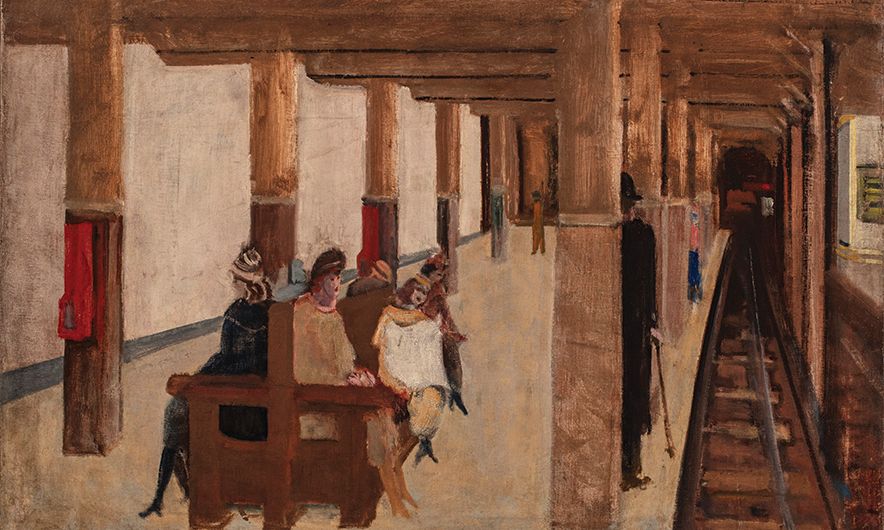“The pained banality of the commute”: Mark Rothko’s Untitled (The Subway) (1937), an early work depicting a New York City subway station © 1998 Kate Rothko Prizel & Christopher Rothko—Adagp, Paris, 2023
For many, the American Abstract Expressionist Mark Rothko (1903-70) is all bold colours and moody rectangles. But a new survey at the Fondation Louis Vuitton in Paris will take a circular approach to his career. Finding abstract forms in the early socialist street scenes and stressing, once more—with real gusto this time—political commitment in the colour fields, the exhibition will aim to be a definitive Parisian take on the American master of melancholy.
Curated by the indomitable Suzanne Pagé, the artistic director of the Louis Vuitton Foundation, along with Christopher Rothko, the artist’s son, the exhibition—simply titled Mark Rothko—will show more sides to one of the most familiar artists of the 20th century. Not least will be the struggling realist grafter who starved during the Great Depression and whose subject was not the weightiest of philosophical conundrums but the nearest and most material problems: vagrancy, unemployment, the pained banality of the commute.
Rothko's Light Cloud, Dark Cloud (1957) and Self Portrait (1936) © 1998 Kate Rothko Prizel & Christopher Rothko – Adagp, Paris, 2023
Of course, most punters will come for the classic colour field paintings such as Light Cloud, Dark Cloud (1957), Red on Maroon (1958) and No. 8 (1964). It will be interesting to see how the curators display these works in the light-filled curvature of the Frank Gehry-designed panoramic behemoth, which does not necessarily lend itself to quiet reflection on what Rothko called “tragedy, ecstasy, doom, and so on”.
A coup for the show will be the loan of Tate Modern’s entire Rothko Room, consisting of Rothko’s nine Seagram Murals. After the artist infamously reneged on his commission to produce a suite of works for the restaurant at the Four Seasons in the Seagram Building—“anybody who will eat that kind of food for those kind of prices will never look at a painting of mine,” he said, haunted by cruel posterity—and handed them over to the Tate, curators have tried to bring the Rothko of firebrand socialism and anti-establishment rage to life. It has often felt a little at odds with his world of forms. But, perhaps, the brainchild of a multi-billionaire fashion mogul on the banks of the Seine might be just the most unlikely place to find him.
• Mark Rothko, Fondation Louis Vuitton, Paris, 18 October-2 April 2024

